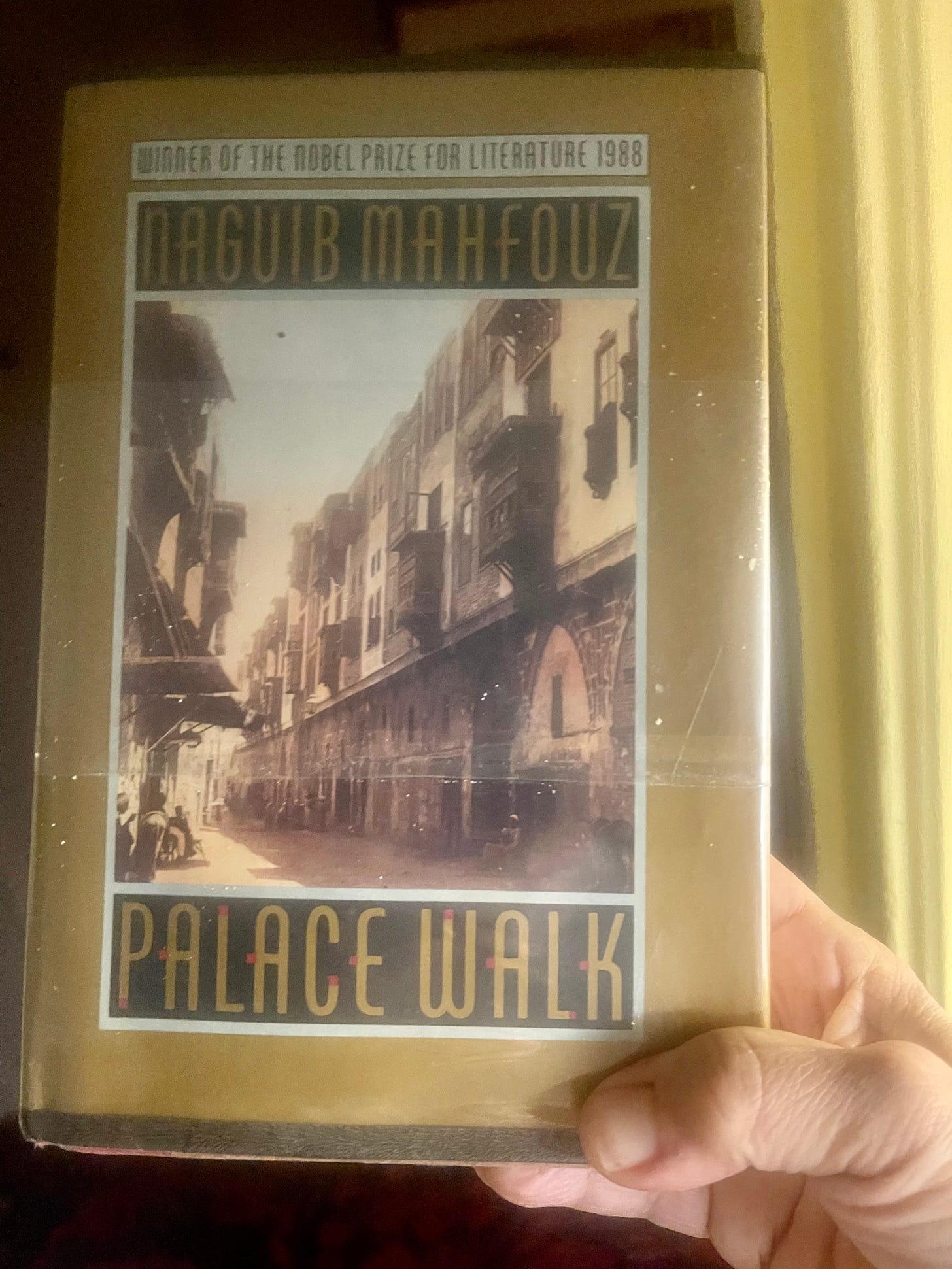Nearly 100 years before Arab Spring convulsed Egypt and Tunisia, another lesser known revolution was brewing. The Egyptian Revolution of 1919 was a countrywide revolution against the British occupation of Egypt and Sudan. It was carried out by Egyptians from different walks of life in the wake of the British-ordered exile of the revolutionary National leader Sa’d Zaghul and other members of the Wafd Party in 1919.
Soon after Sa’d’s arrest and once mass protests began, the British army in the region engaged in violent repression to restore order. By July 25 1919, 800 Egyptians were dead, and 1,600 others were wounded.
This harrowing period in Egyptian history is the setting for “Palace Walk,” the first novel of Nobel Prize winner Naguib Mahfouz’s “Cairo Trilogy.” The story is told from the POV of Al-Sayyid Ahmad, a gruff Egyptian merchant and his upper-middle-class family.
Even by early 20th-century standards, al-Sayyid Ahmad fits the description of MCP (male chauvinist you-know-what) to a tee. He carouses with his buddies in the nightclubs of Cairo and cheats on his wife with bawdy chanteuses. At home, it’s a different story: his pious wife Amina is so afraid of his ill temper, she assesses him timorously as “Sir” and dreads giving him any bad news.
Meanwhile, al-Sayyid Ahmad’s daughters are treated as second-class individuals, or at best, as candidates for arranged marriages to his buddies’ sons. His own sons are a mixed bag: one’s a proto-revolutionary, another is a drunk who can’t keep his hands off the housemaids, and his youngest son, age 11, is a spitfire (probably a stand-in for the author himself). In short, your typical dysfunctional family—only in early 20th century Cairo.
How the impending revolution will change al-Sayyid Ahmad’s character and his relationship with his family is the thread that holds this old-fashioned novel together. At 500 pages, it’s certainly not everybody’s cup of Egyptian Koshari tea. But our current Secretary of Transportation cited “Palace Walk” as one of his favorite books. And if it’s good enough for Pete Buttigieg, it may just be good enough for you.




This sounds interesting. And if it’s good enough for you and Pete, it’s good enough for me.
Sounds quite good. Thanks so much.